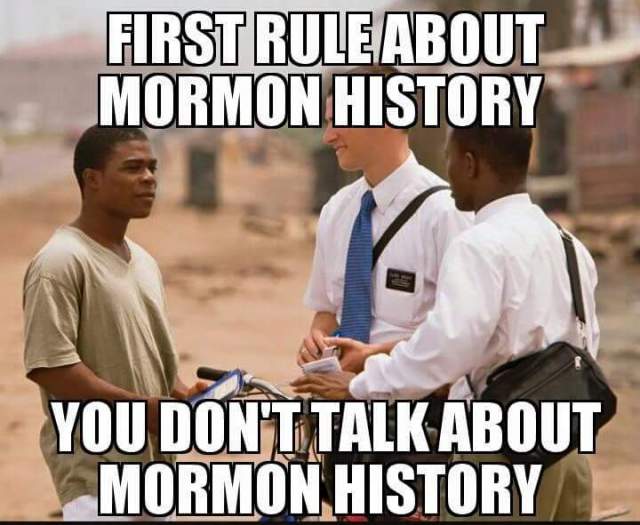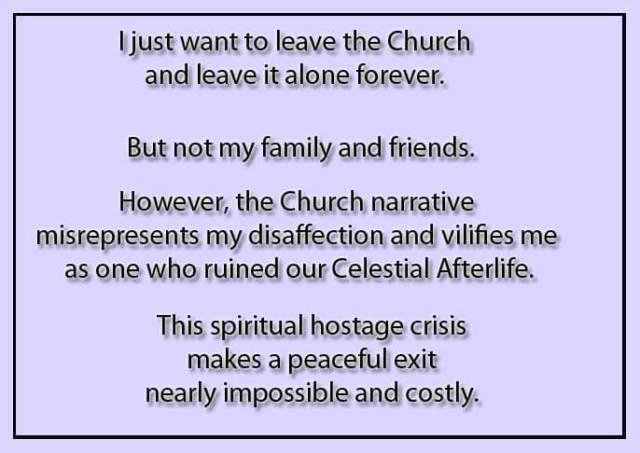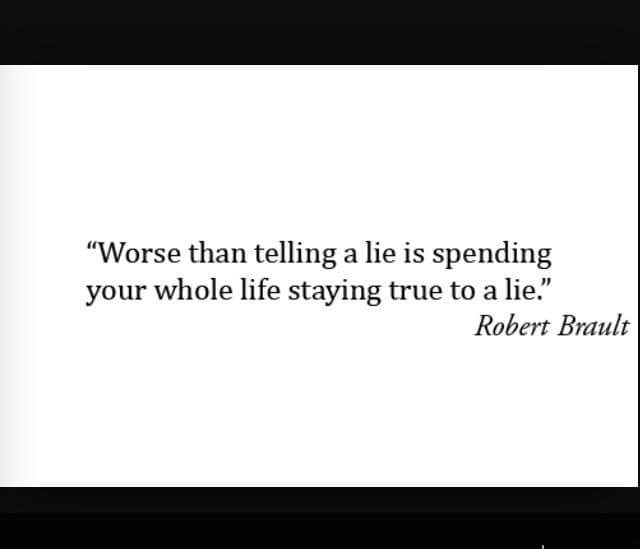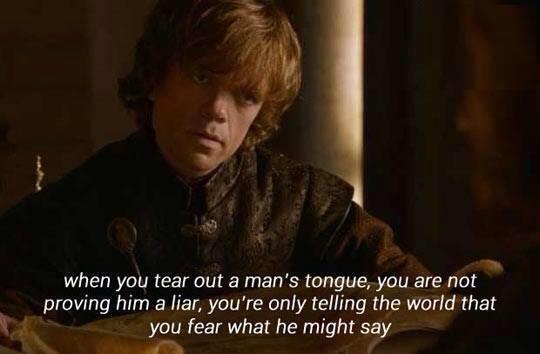Due to the international and UK media attention this week on the grossly inappropriate interviews of children by Mormon bishops, I feel I need to share my thoughts and feelings about this based on my own experiences as a bishop for 7 years in Helston, Cornwall.
Here in the UK we’ve recently had a major scandal with celebrities committing sexual abuse of minors. They got away with it because of the authority the celebrities commanded and the youths themselves didn’t think anyone would listen to them if they spoke out against these celebrities.
I think there are two major concerns in regards to this problem. One is the abuse of ‘God-given’ authority, the other is regarding the use (or abuse) of undue influence or mind-control measures by the Church.
I think the whole concept of the authority which a bishop commands is a grossly indecent concept. I don’t think it’s right that any person should have any authority over another in God’ s name. I personally don’t think anyone should come between an individual and God. As soon as a man thinks he has authority from God there is inequality and discrimination. Let’s face it, the man who believes he has authority thinks God is inspiring him to act and therefore has God’s permission. What a way to build false confidence! And those who are under the Bishop’s authority regard him as being led by no other than God Himself!
That’s way too much authority for any man to be entrusted with.
When I was a Bishop my Stake President regularly and forcefully reiterated the message that I was called of God in the same way that the Prophet of the Church was called of God. That the mantle of my calling meant I was privileged to receive revelation on behalf of the Ward and therefore my counsel should never be questioned except by him as the Stake President. ONLY the Stake President was allowed to question my thoughts and ideas as the Bishop. He taught the Ward members that I was called to be like the Prophet to them. In fact a member of one of the Quorums of Seventy came to a special Stake Conference Priesthood Leadership Training meeting and told us the same thing, adding that my counselors and other PEC members should organise the work in the Ward in such a way that Bishops have the time to focus on receiving revelation for the Ward.
With that sort of power over the minds of others, who is going to openly question the Bishop’s interview techniques. Not the vulnerable youth, or even the parents for that matter. Not only that, but there is a specific promise which temple-going members make not to ‘speak evil of the Lord’s annointed’. Even if there was a concern, faithful members dare not speak up for fear of being disobedient to that sacred covenant. They are told time and time again that ‘Obedience is the First Law of Heaven’, and even if they disagree with what a priesthood leader says or does, and even if that priesthood leader is actually wrong to ask them to do something, that being obedient will bring the Lord’s blessings in spite of that priesthood leader.
How will the Stake President ever get to hear of any wrong doing by a bishop if no-one feels they can complain?
I know of one case where a sister did make a complaint against a bishop/branch president regarding his inappropriately intrusive and sexually abusive questionning of her teenage children, which she believed amounted to grooming. Her complaints were not believed by most priesthood leaders because she herself was only semi-active. However, her complaint was eventually investigated and believed because other people too, including myself as a Bishop, had major concerns about his leadership style. When confronted by the Stake President he became very angry and moved house out of the Stake boundaries. The Stake President was rightly concerned that his abusive leadership style could eventually hurt someone so wrote to the Area Authorities about his concerns. Unfortunately even the Stake President was considered to be mistaken and his concerns were considered irrelevant & misjudged. So the man was recalled as a Bishop in another part of the country. Basically because the Area Authorities believed their own personal revelation (from God) about this man was superior to the previous Stake President’s advice.
When it comes to my other concern, undue influence or mind control, it is endemic in religion and particularly in a more dangerous and subtle way in Mormonism. Using natural sexual urges and behaviour as a means of causing guilt and shame is a very useful and well-used tool to control the membership. We are right to be shocked and disgusted by the Church leadership’s focus on masturbation etc. in conference talks, Youth Sunday lessons, and interviews, but it is endemic and I believe is going to be very difficult to change.
That doesn’t mean I think we shouldn’t try, in fact quite the opposite, I think we should try to expose this dangerous practise for what it is.
As a bishop and ‘Judge in Israel’ (though only a Common Judge) I felt it my burden of responsibility to ascertain whether the member being interviewed understood the recommend questions, particularly when the member is planning to visit the Temple. So quite often the Law of Chastity had to be explained to teenagers and even adults. I would ask open-ended questions.
However, I do realise several teenagers I interviewed were very uncomfortable with the questions I posed. And I’m now sorry about what I put them through.
The problem is that as a bishop you have no way of knowing whether a young person understands what living the law of chastity actually means in a very practical sense, unless you ask them. If they are too embarrassed to say, then as a bishop you feel obliged to probe further with more questions.
I was trained to increase the feelings of guilt by my Stake President.
As a bishop I was trained to ‘help members repent fully by encouraging their sincere contrition & humility using carefully selected scriptures which increased their feeling of guilt & shame. This included verses from the story of Alma the Younger’s repentance story in the Book of Mormon during his visit from an angel.
Of course, after confession I would show forth an increase in understanding & compassion towards the individual on behalf of God & the Church. The members were nearly always so grateful for my expressions of support & empathy.
I regret my involvement in this totally manipulative process now & see out as a massive form of mind-control.
This is partly what drives me as I try to undo the harm I did as a bishop in this process.
Of course now I understand things very differently and do not consider the Church should be prying into our teenagers, or adults, intimate personal affairs at all.
Asking young women (as young as 12 years of age) what they understand about the Law of Chastity is not appropriate in my mind. Asking them whether they stimulated themselves sexually is completely wrong too, but that is what I did. I believed I needed to help the teenagers be pure and clean and worthy to enter the Temple.
Asking young men whether they looked at pornography and if they did getting them to text me every day to report is again very wrong. But this is what we did.
‘
I wasn’t taught to ‘pretend’. But I was taught in very strong terms to ‘know’ by the power of God the honesty and intentions of those I interviewed.
I had the audacity as a newly called bishop to ask if we were going to be trained in interview and counseling techniques during a bi-monthly Bishops training meeting. I received stern rebuke by my fellow Bishops who quickly asserted they had the power of God and the Power of Discernment to guide them and I was showing a complete lack of faith to even suggest we needed any training.
The Stake President did organise an hour of training by a counsellor from LDS Family Services which frankly was very underwhelming.
I did receive one-on-one training by the Stake President in how to humble members in interview situations to get them to confess to sins.
After a few years as Bishop we were told in a priesthood leadership meeting that no bishop should ask any deeply intimate questions involving sexual activity. The Stake President implied that if anyone had been involved in such questioning they were in gross error and it was the sole responsibility of the Bishop and not the responsibility or fault of the Church.
But we only heard this around 2009. At the time I wondered if someone had tried suing the Church for such behaviour. And obviously the Church was trying to place the blame solely with the individual Bishops.
Of course the poor Bishops are really left to their devices and with all the kooky authority they think they have it’s a dangerous situation.
In reality they are untrained and in the vast majority of cases completely out of their depth!
Most Bishops mean well, but feel obliged to push the members with probing questions in order to help the member purge their souls. We are taught we are Judges in Israel and as such are the gamekeepers to eternal blessings. We are taught that no unclean thing can enter the kingdom of God or the Temple of the Lord. So see our roles as catalysts for repentance, and assistants to the members in their path toward forgiveness.
Church disciplinary procedures are seen as assisting members in their repentance process by humbling the members, if necessary by removing privileges which have publicly visible consequences, like stopping members from saying prayers in meetings and stopping them partaking of the sacrament.
Helping members repent by public humiliation is seen as more important than respect of the individuals right to privacy.
After all we should all have “a contrite heart and a broken spirit!!!
” Shouldn’t we????!











